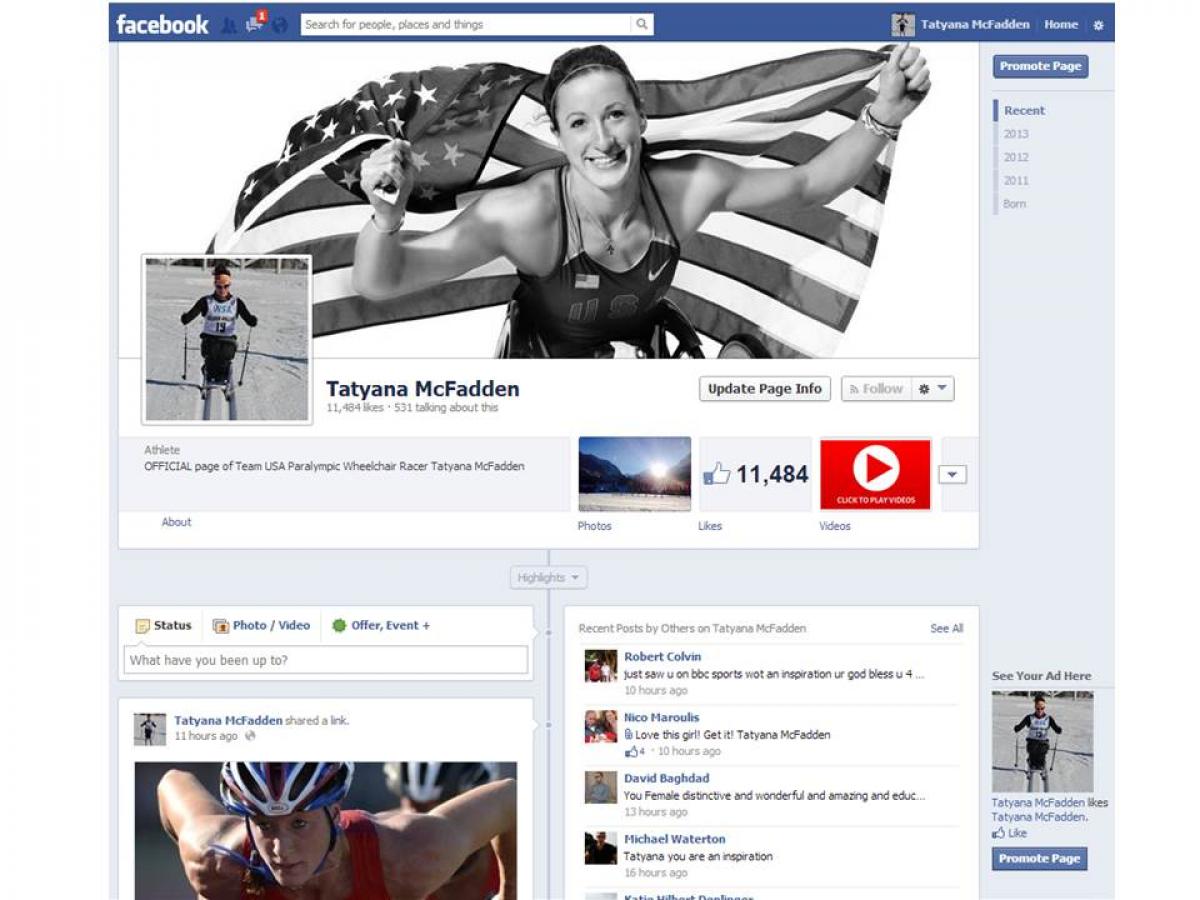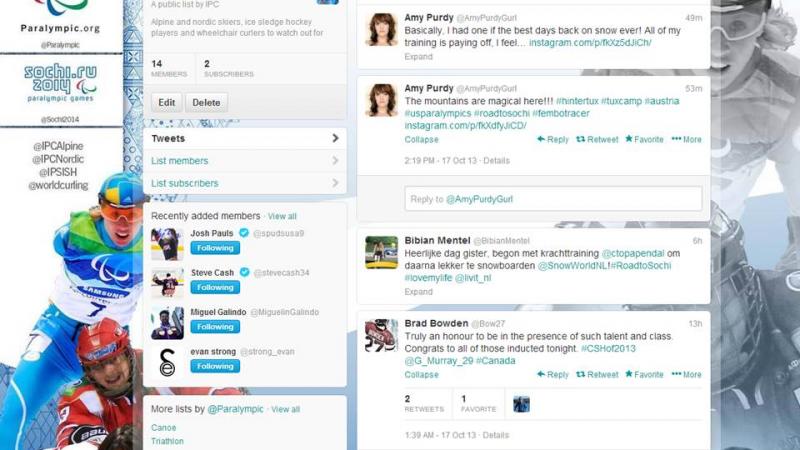Top 16 tips for athletes to get to grips with Facebook
With the Sochi 2014 Paralympic Winter Games fast approaching, athletes and teams can use Facebook to share their stories and build a fan base. 22 Jan 2014
Tatyana McFadden's Facebook page has over 11,000 likes.
Like London 2012, the Sochi 2014 Paralympic Winter Games are shaping up to become another social Games. Social media is now an intrinsic part of sport – a place where fans can find results, photos, sporting action and connect with their favourite athletes and teams.
If you already have a personal profile on Facebook, you may be sharing some of this content with your friends and family already. There are some advantages, however, to going a step further and setting up a Facebook fan page. It means that you can easily separate out private and public information, and it is a convenient space to build a fan community. There is also a limit on the number of friends you can have (5,000), but there is no limit to the number of likes a page can have. Fan pages are also indexed in search engine results, allowing them to be found more easily. In addition, other people can be administrators on your page and post on your behalf, which can be especially useful during busy periods.
Here are some more reasons why you might like to set up a Facebook fan page:
Why?
1. Facebook is an international social media network with over 1 billion active users – huge potential to spread your message.
2. The most marketable athletes in the world often market themselves through social media. Facebook is a great platform to shape your personal brand. Check out this list of SportsPro’s most marketable athletes of 2013 on Facebook for some ideas.
3. Athletes are the greatest ambassadors for the Paralympic Movement. Through their stories, they have the power inspire and excite the world and spread a message of inclusion. If you enjoy sharing images and updates, Facebook could be your platform to do that.
How?
4. Go to https://www.facebook.com/pages/create/ and select the type of page you want. If you are an athlete, you should select "artist, band or public figure". You will need to have set up a personal profile in order to create a fan page.
5. Follow the steps to add a name, photo and description for your page. Use your full name (both in English and in your country’s own alphabet if it is different). This will enable you to be found in searches more easily. Make sure you include your other social media profiles and website, and complete your profile with as much detail as possible.
6. Ensure you create a custom Facebook web address. If you have not done this, go to https://www.facebook.com/username. This will give you a shorter URL without numbers in it.
7. Lay out your biography with milestones, like competition successes and world records. Include links to videos, photos and articles about yourself.
8. Once you’re happy with it, invite all of your friends to like your page. Add a Facebook widget to your website and link to it from your Twitter/ Instagram profile, so that fans can easily find you.
What?
9. Make sure you post on a regular basis. There is nothing worse for fans than a ghost account, where you only post once a year. Your sport should obviously come first, but try to post updates of your training progress, public appearances and any major successes/ disappointments during competitions. Give people a reason to come back to your page.
10. Research shows that pictures get 120% more engagement on Facebook than text posts. Link your page up to your Instagram account and share photos of your life as an athlete. Don't just share race pictures, but also behind-the-scenes images that give your fans added bonus. Make sure you have a great profile and cover image to make an instant impression on your fans. Try to make these photos sport-specific, so that fans can instantly recognise who you are and what you do.
11. Be yourself – Write your posts in the first person and be authentic. People want to follow real people, so share your personality, sense of humour and ideas.
12. Break news – make your Facebook account the first place your fans can find out what you will be doing next.
13. Exclusive access – Post behind-the-scenes content, give unique insights and exclusive information.
14. Be engaging – ask questions, involve your fans with “fill in the blank” status updates and include a call to action (e.g. asking fans to like or share a post). Try to reply to fan questions and comments. Acknowledge fan posts by liking them where appropriate.
15. Monitor your page insights. These can be found in the tab on the admin panel. They tell you who your audience is, when they are online and which posts have been the most successful. Use these stats to share posts when and how your fans want them.
Are there any rules?
16. Common sense should prevail. The IPC actively encourages athletes to post to social media, but there are some ground rules. Check out the IPC’s Social Media Guidelines for more information.

 Facebook
Facebook
 Instagram
Instagram
 Twitter
Twitter
 Youtube
Youtube
 TikTok
TikTok
 Newsletter Subscribe
Newsletter Subscribe





